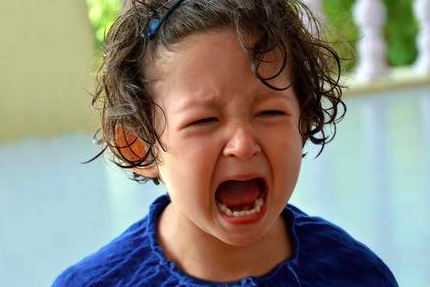Anger and Frustration in Children and Teens

Every single child has experienced anger or frustration before they reach the age of walking. It is one of the most primary human emotions and is also thought of as one of the most damaging and negative feelings that can be experienced any human being. It is, of course, true that anger can be incredibly harmful even to our bodies and our health if it is experienced on a regular basis and at extreme levels. However, anger can also serve us in many positive ways too. Very often feeling a sense of anger is a sign that we have been violated in some way, that someone has overstepped a line and we want to communicate that to them. The reason why we become angry is sometimes in response to that, but sometimes the anger is directed more so towards ourselves because we didn’t stand up and say the things we wanted to say. We then become frustrated with ourselves for having let a situation occur that we could have put a stop to.
When children become angry or frustrated it can impact their lives in so many different ways. It can cause them to damage their friendships and other relationships, and it may interfere with their education if their teachers begin to grow weary of dealing with their outbursts. Some children even become excluded from education altogether because they don’t learn the skill to be able to keep their anger under control. Anger can occur as a result of modelling, which is when it is copied from others but it doesn’t always come about in this way. Sometimes it’s simply a pattern of behaviour that has got them adequate levels of attention in the past and then starts to meet a need. Some children become angry because they have extreme levels of adrenaline in their body, and so they use anger as a way to literally let off some steam. Where other people might go to the gym or go for a run, the child’s energy gets used up as a result of their emotional outbursts. This, of course, is not an acceptable way to use up excess adrenaline and this needs to be addressed.
It’s important that anger is taken into consideration as the serious issue that it can be and can become. Children who experience extreme levels of anger can go on to get themselves into some very deep trouble, particularly if they become aggressive. If this is left unattended then they may find themselves in trouble with other young people, with the local authorities, or even with the police later on in life. There are different ways in which we can address anger issues, and it’s somewhat more complex than simply taking a few deep breaths and counting to 10. We really need to examine what’s going on behind the anger, what needs it might be addressing, and if there are any patterns as to what is triggering these angry outbursts.
In order to properly consider all of the different ways in which we might treat anger, it’s important that a thorough consultation session takes place. I offer these at my therapy centre in Essex, where I work with children and families from Basildon, Billericay, Wickford, Southend on Sea, Chelmsford, Colchester, and Brentwood. You may also benefit from attending sessions too, in order to address your own reactions to the angry outbursts that are sitting in your child. It is important that you have new responses in order to nip their behaviour in the bud before it becomes out of hand.
We never completely get rid of anger because it is an important emotion for all of us to have. If your child was victimized in some way, getting angry about it would be an appropriate response, and could be a useful way to let the other party know that they have overstepped the line. But it is about how that anger is communicated and how it is expressed. It’s also important that they learn how to quickly move on after an angry outburst so that they’re not left with feelings of guilt, shame or sadness as a result of expressing themselves appropriately when something has angered them. If you would like to discuss this further, please get in touch with my assistant Olivia on 07958 203 274
By Gemma Bailey
https://www.essexchildtherapy.nlp4kids.org/bookings

Leave a Reply